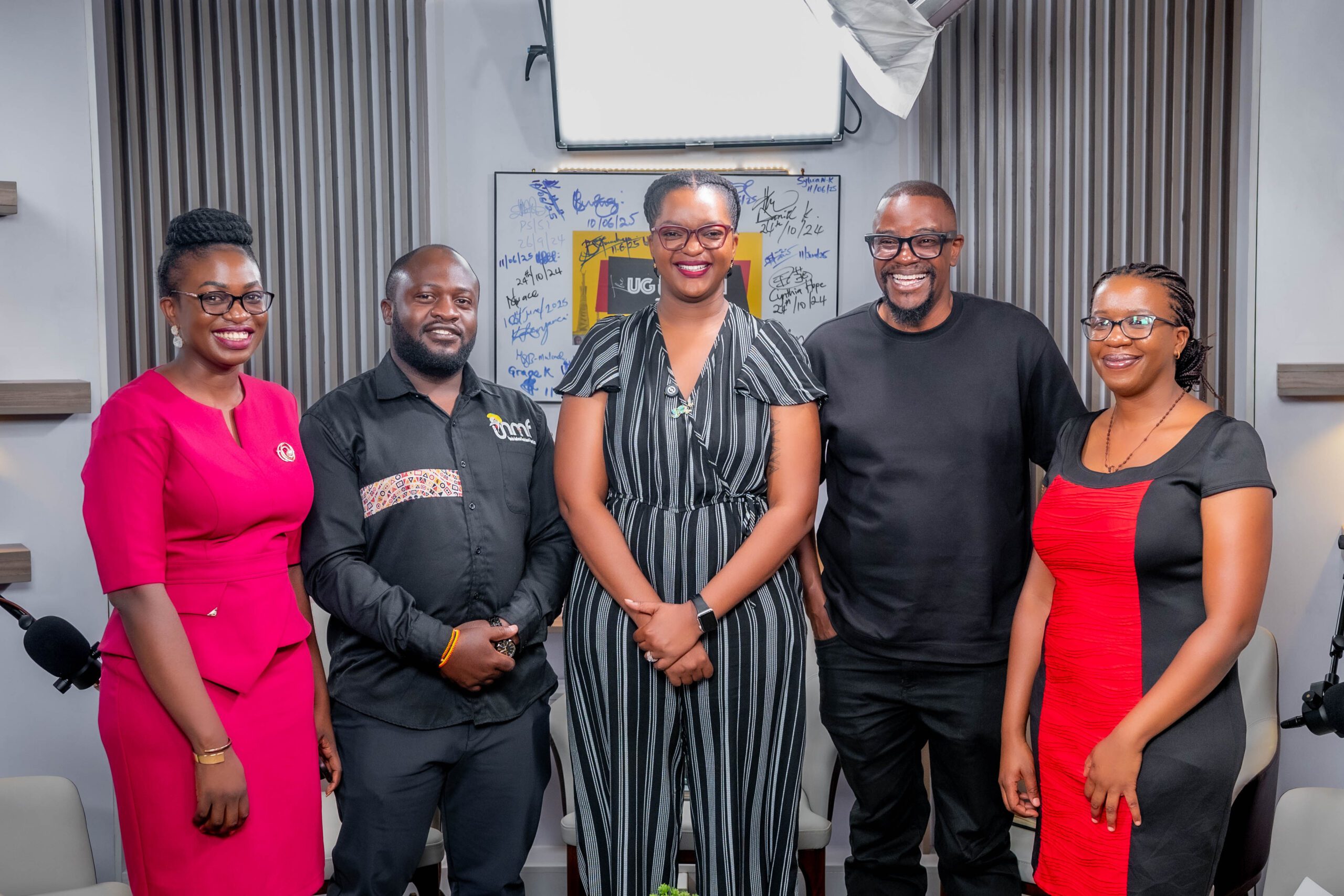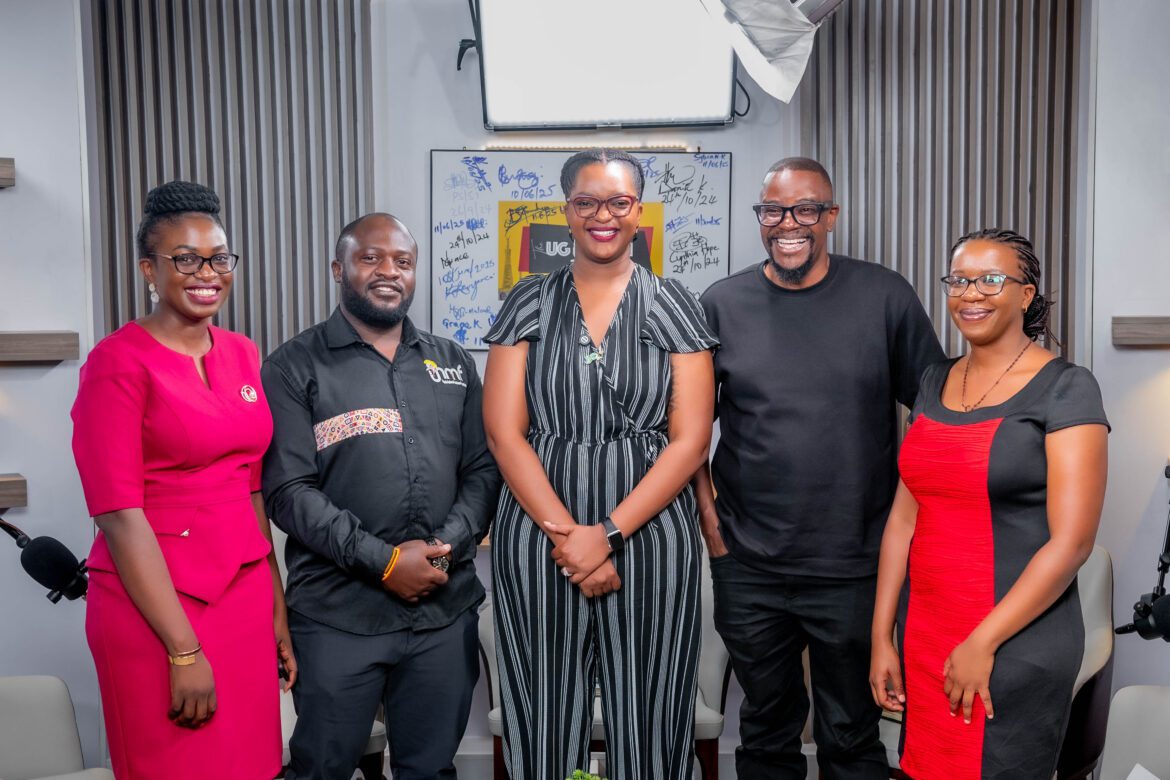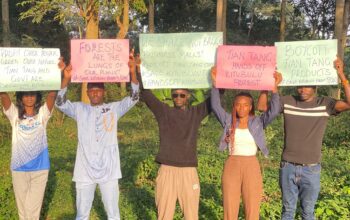Piracy and Intellectual Property theft have long plagued Uganda’s creative sector, robbing musicians, filmmakers, producers and innovators of both recognition and income.
But government agencies, industry leaders and artistes themselves are now pushing harder than ever to safeguard creative work, urging Ugandans to value Intellectual Property (IP) as a cornerstone of economic growth.
Speaking on the latest episode of The Ugandan Podcast Season 4 organized by the Ministry of ICT and National Guidance in partnership with MultiChoice Uganda, Shirley Gladys Nakyejwe, an Intellectual Property Management Specialist at the Ministry of ICT and National Guidance, emphasized the importance of building an enabling environment for creators.
“Our mandate is to create an enabling environment for creators,” she said. “We are working with different agencies such as URSB and other government bodies to ensure that there is awareness, but also to facilitate innovators with registration and management processes.”
Nakyejwe explained that while Uganda has a National Intellectual Property policy, the Ministry has taken steps to simplify and contextualize it for creatives.
“We developed the IP guidelines because as a ministry our mandate is to ensure that the IP ecosystem thrives. We are working with regional innovation hubs and public universities across the country to educate creators and innovators about the various types of ownership in regards to intellectual property,” she noted.
For many artistes, registration remains the missing link in protecting their work. Nakyejwe urged creators not to stop at producing content, but to take the extra step of registering it.
“If you just put your work out there, it will be utilized by others for free. But if you have a registration certificate, then you can provide it as evidence that you are the owner and you have exclusive rights to who and how it can be utilized. You can also present it in court in case there are ownership disputes,” she said.
The Ministry has also developed an IP toolkit available both online and offline which can be downloaded from the Ministry of ICT website and in hard copies at universities, alongside organizing intellectual property clinics across the country.

These clinics bring together creators, government agencies, private sector players and civil society organizations to deepen understanding of copyright and neighboring rights.
But still, Nakyejwe admitted that low levels of awareness remain a major challenge whereby many creators do not know the worth of what they are producing.
From the Uganda Registration Services Bureau (URSB), Elizabeth Nabasirye, who works in the Copyright and Neighboring Rights Department, outlined the agency’s role.
“Intellectual Property are creations owned from the mind,” she explained, pointing out categories such as trademarks, patents, copyrights and geographical indications.
“URSB is the government agency that is charged with the duty of registering Intellectual Property. We provide the framework for registration, advise government and institutions and regulate collective management organizations that enforce rights on behalf of creators,” she said.
Nabasirye revealed that URSB had recently elevated copyright by launching a dedicated department in March this year, following growing concerns from musicians and other creators.
The mandate of this department is to register and sensitize the creatives about copyright.
“Copyright has always been there though many creatives were unaware of it,” she said. “Yes, you get automatic copyright when you create your work, but please go ahead and register it,” Nabasirye said.
She stressed that the registration process is straightforward and affordable at the cost of just UGX 50,000.
Applicants can download the copyright form from URSB’s website, fill it in and submit it along with their national ID and a copy of their work.
But then you have to take a physical copy of your work to any of URSB offices near you and once it is received, it is processed and the creative is given a gazette notice within one day.
The creative takes that notice to Uganda Printing and Publishing Corporation (UPPC) and have the notice run in the Uganda gazette for 60 days.
These 60 days are a room for any objection. If within the 60 days there is no one who has objected, you return the gazette to URSB and you are issued a certificate.
From the perspective of the creative sector, Benon Mugumbya, Manager at Swangz Avenue, acknowledged the industry’s own role in fueling piracy.
“I have to come clean and say that a lot of us stakeholders in the creative sector have facilitated piracy knowingly and unknowingly,” he admitted. “In the early days, we creatives were the enablers of piracy and violating copyright simply because the goals were different. But now as we progress and invest to build proper businesses in the entertainment industry, we need to fight these vices.”
Mugumbya highlighted expensive internet as another barrier that hampers the industry’s growth. While more content is consumed online, high data costs limit audience reach.
“It is a good thing now that a lot of our content is consumed online, but the cost of internet is high which limits consumption,” he said.
Meanwhile, the Uganda National Musicians Federation (UNMF) is taking up sensitization as its main weapon against piracy. According to Martin Muhumuza, the Federation’s Research and Development Director, collective awareness is key.
“The best UNMF can do is sensitizing and mobilizing our people and telling them what they create can mean for them in the future and financially and providing a platform where creatives can come together to share ideas,” he explained.
As the discussions revealed, the fight against piracy and Intellectual Property ownership in Uganda is not only about legal enforcement but also about cultural change; one that instills value in creativity and respect for ownership.
Protecting Intellectual Property, the speakers stressed, goes beyond technicalities. It is about empowering Ugandan creatives to optimize their creativity and secure their futures.
By registering Intellectual Property, enforcing copyright and fostering awareness, Uganda’s creative economy can move towards a future where originality is respected, piracy is curbed, and artistes are rewarded for their contributions.





